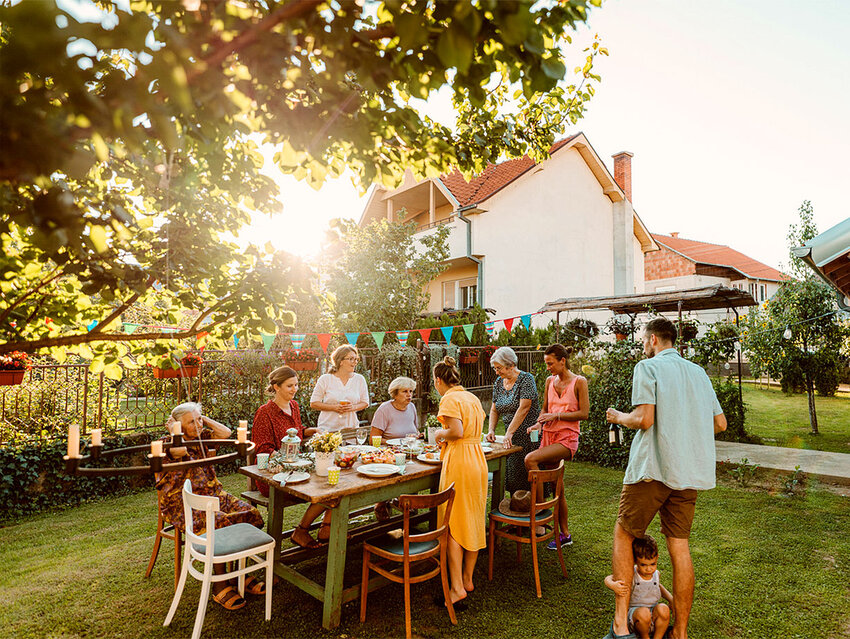Let’s party! Summer is a great time to host an outdoor function — the weather is warm, the days are long, and there are ample three-day weekends to celebrate. But what type of party do you want to throw? To help fill up your social calendar all season long, we’ve assembled a variety of terms for warm-weather parties, and we’ll explore what makes each type of outdoor festivity unique.
Garden Party
A garden party is just what the name says: a social event, generally a large formal gathering, held in a garden. While “garden” has been used as an adjective since 1600, the particular usage of “garden party” originated in an 1845 article in The Morning Post listing the fashionable events of the week. As this London paper would indicate, it has traditionally been a British affair.
Picnic
When “picnic” appeared in the English language in the late 18th century, it didn’t refer to an informal meal eaten outdoors. The original picnic was a fashionable social event more akin to a modern-day potluck, where each guest contributed a dish, and it didn’t have to take place outside. It likely comes from the French piquenique, which is a linguistic reduplication of the Old French piquer, meaning “to pick, peck.”
Cookout
This chiefly American party term describes any gathering where food is cooked and eaten outdoors — it’s essentially a synonym for “barbecue.” It appeared in English circa 1930, but the Oxford English Dictionary (OED) traces its earliest printed usage to a 1941 issue of the Sunday Star: “Features for the other campers this week include a breakfast ‘cookout’ and a treasure hunt.”
Barbecue
This might be controversial — some say “barbecue” is strictly a style of cooking, not a type of gathering — but here’s another Americanism to describe an outdoor party. When “barbecue” appeared in English in the early 18th century, it generally articulated a party in which an animal was roasted whole over a fire, but it has since evolved to describe an event where any type of food is cooked over fire. It comes from the Spanish barbacoa, from the Arawakan (Haitian Indigenous) barbakoa, meaning “framework of sticks set upon posts.” West Indians would use a barbakoa structure to cure meat. To further the barbecue controversy, what a Kansas City local considers barbecue cuisine is vastly different from what a Texan eats for barbecue, and other variations exist across the country.
Clambake
This American party word originated in 1835, meaning “picnic feast consisting chiefly of a mass of clams baked on heated stones.” By 1937, it was adopted into jazz slang to refer generally to any type of enjoyable time, but also specifically a jazz jam session.
Block Party
To describe your event as a “block party” implies a certain level of public openness — all are welcome, at least within a certain geographical realm. A block party is a celebration for all the residents of a certain block or neighborhood, and it’s generally held outdoors. The term first appeared in English in the early 20th century.
Soirée
A soirée is an event or party that takes place in the evening. It’s a French loanword that traveled to English in 1793, from the French soir, meaning “evening.” It doesn’t have to be outdoors, but in the summertime, after a hot day in the sun at a block party or a barbecue, you can move the soirée to dance under the stars.
Featured image credit: AleksandarNakic/ iStock

